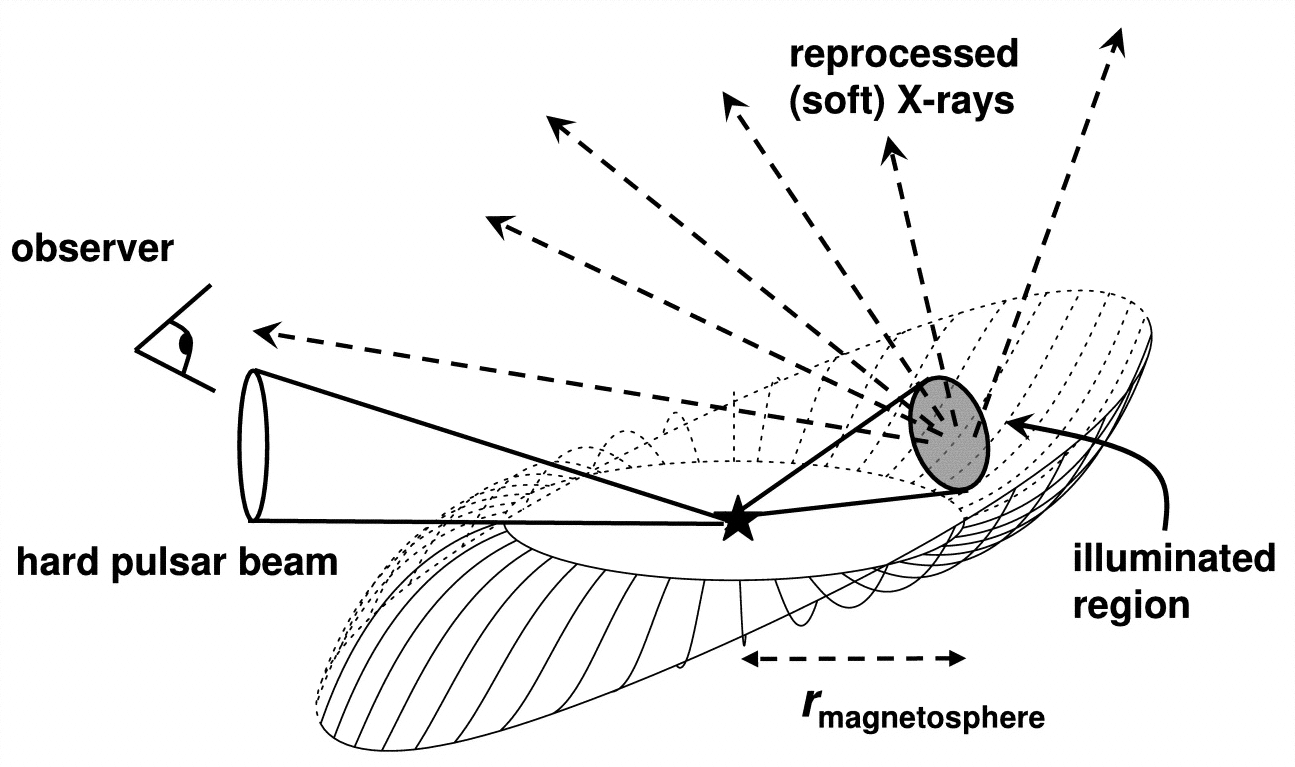
 What are X-ray Binaries?
What are X-ray Binaries?

 What are X-ray Binaries?
What are X-ray Binaries?
 Picture credits. Top left: White and Angellini 2001. Top right: Hynes http://www.astro.soton.ac.uk/
~rih/.
Right: Schematic of disk reprocessing in X-ray pulsars. The hard (power-law spectrum) X-ray beam sweeps around and illuminates the accretion disk, which reradiates a soft X-ray (blackbody) component. The observer sees pulses from both the power-law and blackbody components, but these differ in pulse shape and phase.
Hickox and Vrtilek (2005).
Picture credits. Top left: White and Angellini 2001. Top right: Hynes http://www.astro.soton.ac.uk/
~rih/.
Right: Schematic of disk reprocessing in X-ray pulsars. The hard (power-law spectrum) X-ray beam sweeps around and illuminates the accretion disk, which reradiates a soft X-ray (blackbody) component. The observer sees pulses from both the power-law and blackbody components, but these differ in pulse shape and phase.
Hickox and Vrtilek (2005).
X-ray binaries owe their prominence to one of the most
efficient energy release
mechanisms known: accretion onto a compact object.
In the accretion process gas from the atmosphere of the less dense
companion is accelerated toward the extremely dense
compact star.
Because the stars are orbiting each
other, the gas cannot fall directly onto the compact star, but
forms an
encircling disk of material. As matter spirals though this
accretion
disk, it is accelerated and heated,
causing it to radiate at ever increasing energies.
The energy is released over
essentially the
entire electromagnetic spectrum, with each part of the spectrum revealing
information, often time-variable, characteristic of particular segments of
the system.
The physics behind these processes is complex, involving not only
dynamics of gases under gravity, but also magnetic fields, radiative
transfer, and poorly-understood viscous and other dissipational
effects without which the essential inward transfer of matter through
the disk would be impossible.


